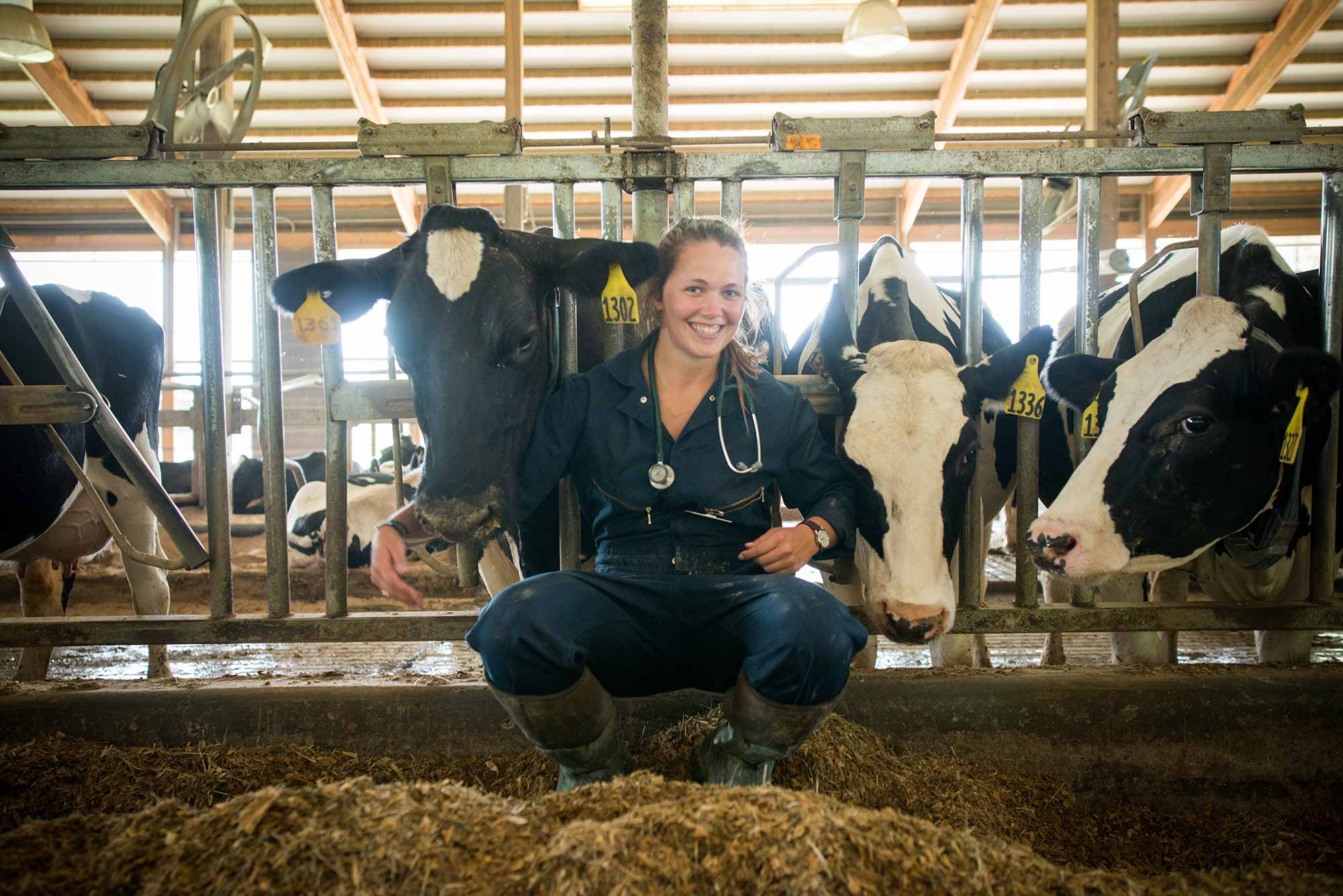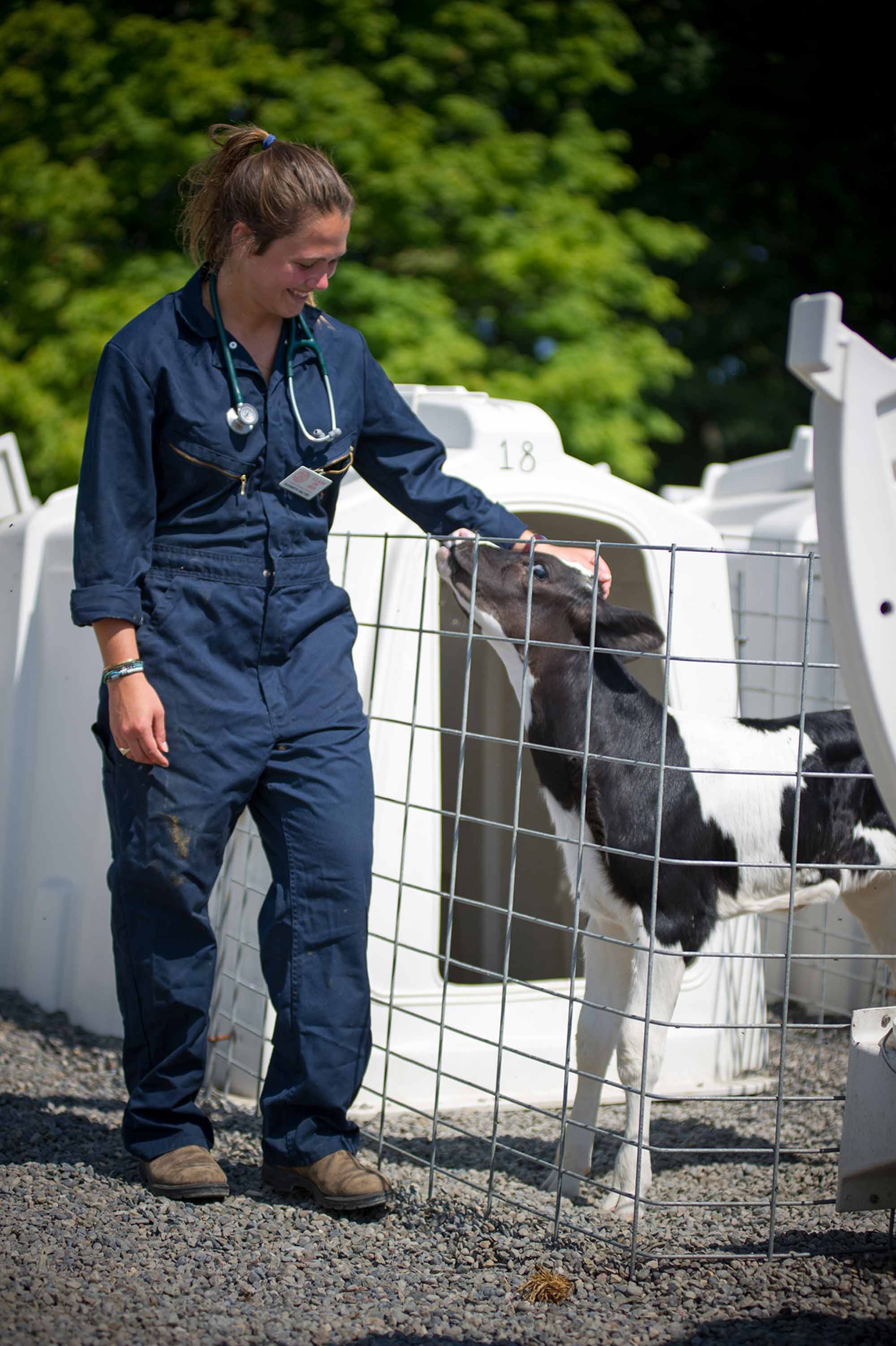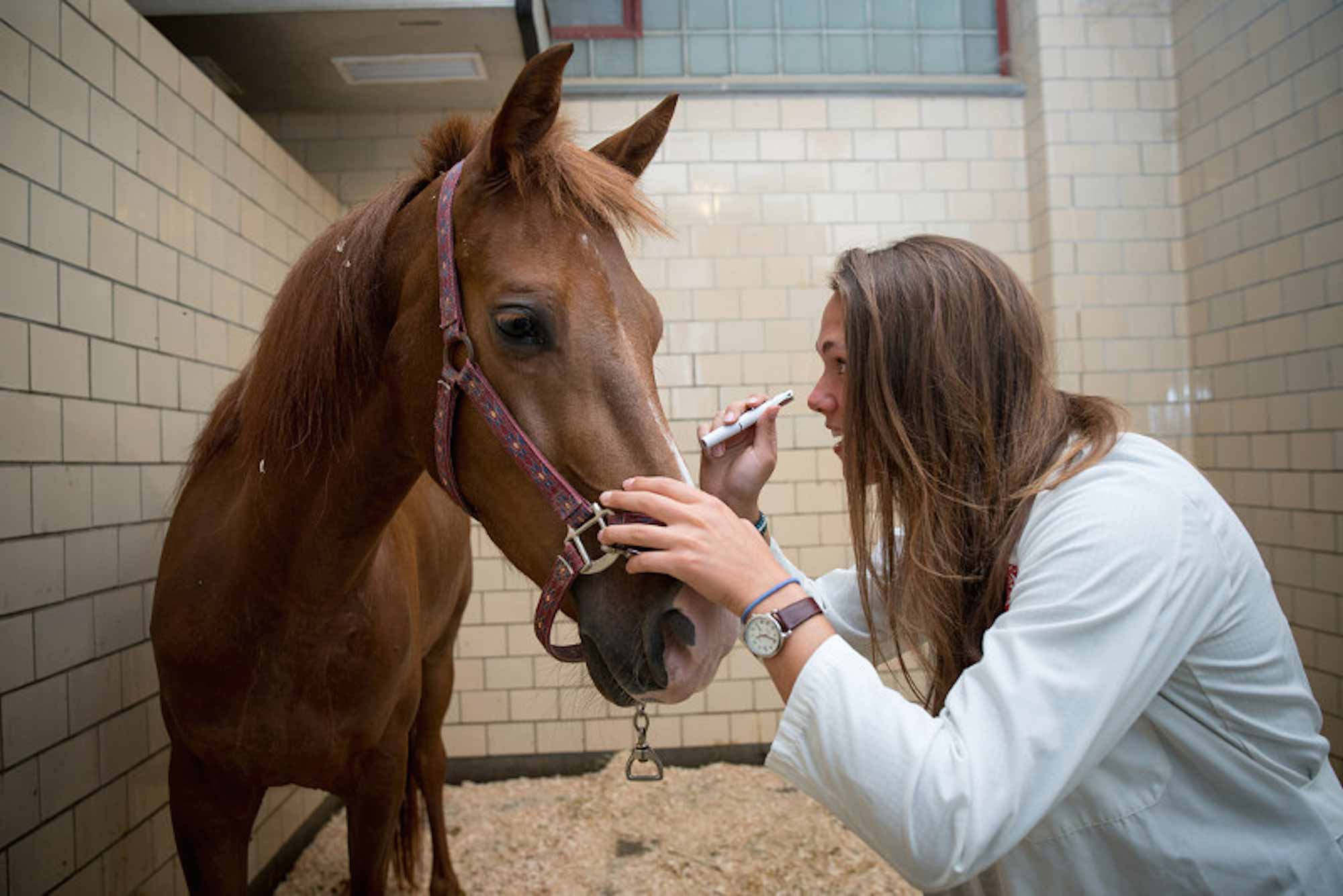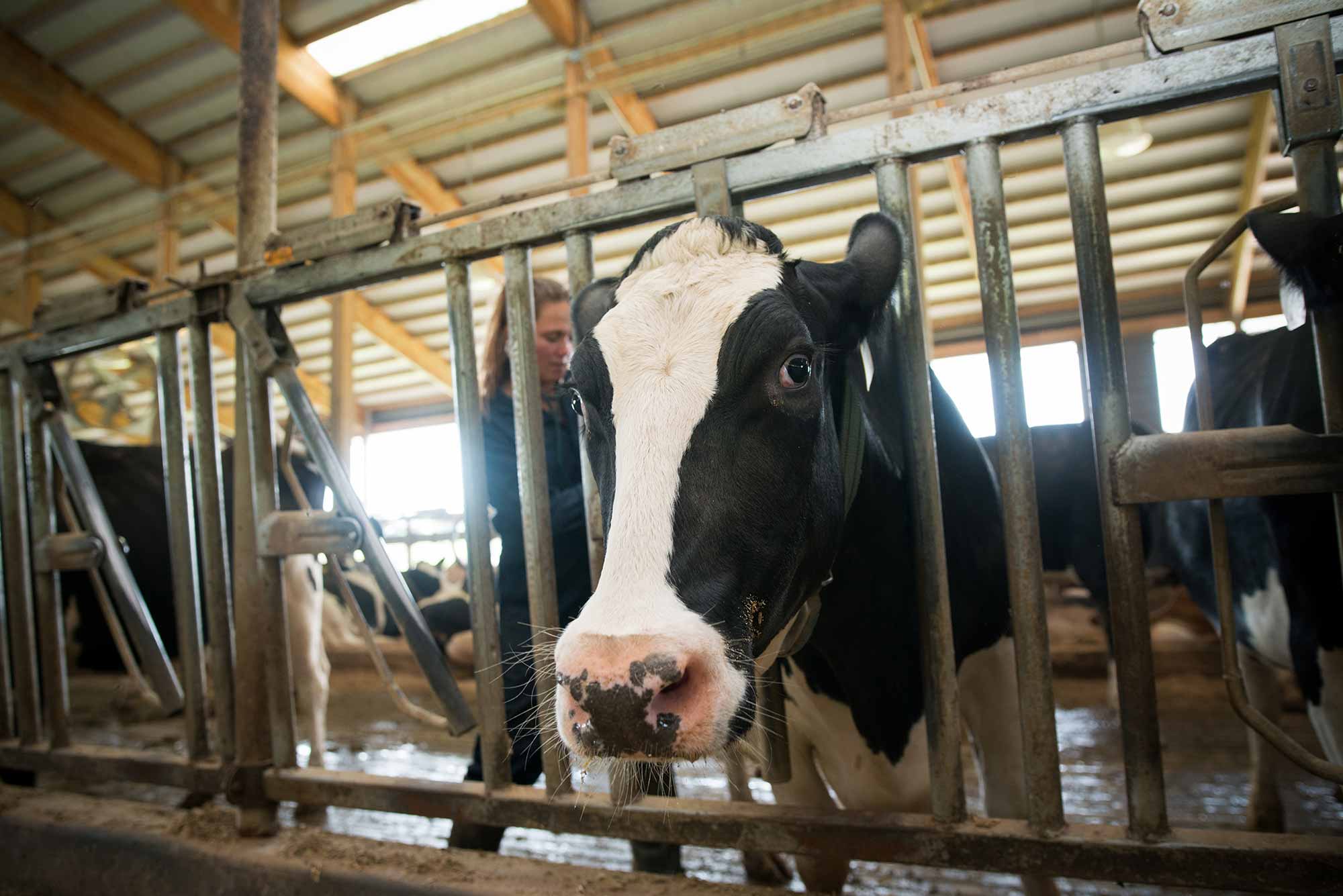When Elizabeth Balter ’15 enrolled at Vassar, she planned to go to medical school after she graduated. But those plans shifted midway through her freshman year after her family’s dog, a Bernese mountain dog named Samson, was diagnosed with cancer. When she asked if she could speak to the veterinary oncologist who was treating Samson, Balter was given a half-hour appointment. “We ended up talking for well over an hour,” she recalls, “and before the meeting ended, I said to myself, ‘Wow, this is what I want to be.’”

Balter landed an internship with a veterinarian the following summer, and that experience cemented her decision. She is now in her second year at Cornell University College of Veterinary Medicine in Ithaca, NY, and she plans to specialize in large-animal care after she earns her degree. “I want to be in an ambulatory practice, driving my truck with my med kit to farms and treating horses and cows and pigs,” she says.
Balter took many of the same biology and chemistry courses at Vassar that she would have taken as a pre-med student, ”but because I was on a vet school track, I tended to take more courses that focused on animal physiology.” Balter says Assistant Prof. of Biology Megan Gall taught some of her favorite courses, but she adds an English course she took from Prof. Michael Joyce during her senior year “made me wish I could spend another four years at Vassar.”

During her first year at Cornell, Balter took an anatomy course she says was “easily the hardest course I’ve ever had.” But she adds Vassar trained her well for the “problem-based learning model” that drives the Cornell curriculum. Students in the second-year class are split into eight-person teams, and three times a week each team is given an eight-page case study on a particular topic.
“The goal is for us to absorb everything we can from those eight pages and come up with a hypothesis, a game plan, for how we would proceed,” Balter explains. She says her academic experience at Vassar, where she took a broad range of courses that helped her to think critically, has given her a “huge advantage” over many of her fellow students at Cornell in completing these assignments. . “Everybody here knows the ins and outs of science,” she says, “but I think I have a better idea of how to grasp the bigger picture, and I think I have much better writing skills than many others.”
Balter says her experience as a varsity swimmer – she was co-captain of the team in her senior year – has also contributed to her success in graduate school. “Head Coach Lisl Prater-Lee was one of the best mentors I ever had, and my co-captain, Zoe Fullerton ’15, was my best friend,” she says. “We pushed each other in everything we did at Vassar.”

Balter says the culture of the swim team truly valued academics. “I think we had the highest grade point average of any team while I was there because we were either working hard together in the pool or we were together studying in the library,” she says. “I couldn’t have asked for a better work-life balance.”
Balter says she often gets up at 6am to swim a few laps in the Cornell pool, and she also makes sure she finds other ways to “get out of the vet school bubble,” she says. “I’m known among my classmates as someone who wants to take a break from talking about school and talk about race issues or women’s issues. I think that’s something I took away from Vassar, too.”
